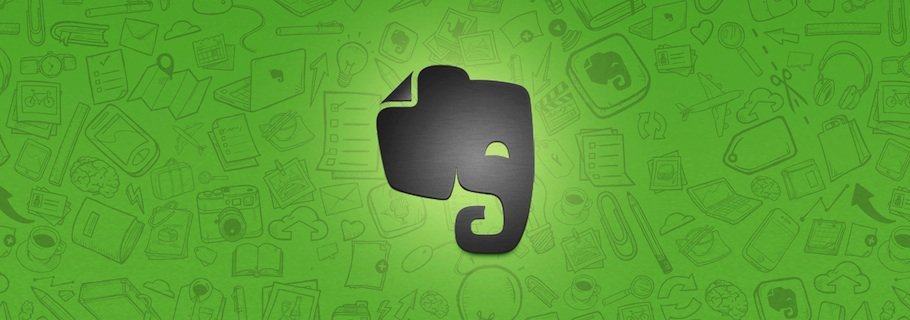Evernote owns me. Evernote knows things about me that I myself have long since forgotten. Evernote is my external brain, my electronic memory. It is one of the best parts of living in a digital age and has quickly become one of my most indispensable electronic tools.
What is Evernote? It is an application designed to record, archive and retrieve information. Designed to use a familiar paradigm—notes stored within notebooks—it is meant to help you remember and act upon ideas, projects and experiences across all the computers, phones and tablets you use. It’s brilliant, and it’s getting better all the time.
Let me explain how and why I use Evernote.
I Take It Everywhere
Evernote goes with me everywhere I go because I never know when I will want to record or retrieve information. I have installed it on pretty much every device I use. It is on my computer at home, it is on my computer at the church office, it is on my cell phone, and it is on my iPad. Where I go, Evernote goes with me and it is never more than a couple of button presses away. It is there when I need to access important documents, and it is there when I have one of those ideas that needs to be recorded right now before I forget all about it.
I Tell It Everything
I regularly feed all kinds of information into Evernote. It took me a while to learn this: The more I enter into it, the more powerful it becomes. When I used it sparingly, I found it less useful than when I committed to it. Here are some of the ways I feed it information:
- Every time I lead a meeting, I create a note to record agendas, minutes, and observations. (Tip: if you use printed agendas, write all over it and then snap a scan of it on your phone using Evernote’s document scanner feature.)
- Every time I think of something I need to buy the next time I am out shopping, I add it to a shopping list.
- When I receive an emailed invoice or receipt, I forward it to Evernote using my Evernote email address. (Tip: add @receipts to the subject line of the email to automatically forward it to a “receipts” notebook.)
- When doing an interview or when having an important discussion, I hit the “record” button and record the discussion.
- When I have an idea for a future blog post or even a future book project, I add it to Evernote.
- Every time I prepare a sermon, conference talk, or devotional, I add it to my “Speaking & Sermons” notebook. This gives me full access to all my sermons and speeches all the time (something that has come in handy more than once!).
- I use the Chrome extension to clip articles and PDF documents I may want to refer to in the future. (Tip: Evernote Premium will allow you to search within PDF documents, something that will definitely come in hand.)
And that is just a start. If it is information I may want to access in the future, it goes in.
I Use It To Eliminate Paper
Because I sometimes work from home and sometimes work from the church office, and because I spend a fair bit of time on the road, I prefer to retain electronic records over paper-based records. Evernote allows me to scan everything—receipts, meeting agendas, business cards, post-it notes, and even random notes on random bits of paper. Best of all, I can scan them using the camera on my phone or tablet and in an instant they are added to my database. I have now almost eliminated paper records altogether.
I Use It To Collaborate
One of the great features of Evernote is sharing. We have recently begun to use Evernote at the church to share information between staff members. For example, we create a note for each Sunday of the year and begin to fill in information we’ll need to know for that day—who is preaching and what his text will be, what other events are happening that day, what we need to announce from the front of the room, and so on. We also have notebooks shared only among elders where we can retain agendas for our elders’ meetings or records of important meetings. The more we collaborate through Evernote, the more helpful it becomes.
And that’s just a start. The fact is, we all need a system to archive, retain and access information. There are tools available today that help us retain more with less effort and to access it with greater ease. Evernote does this for me. Why don’t you give it a try?










